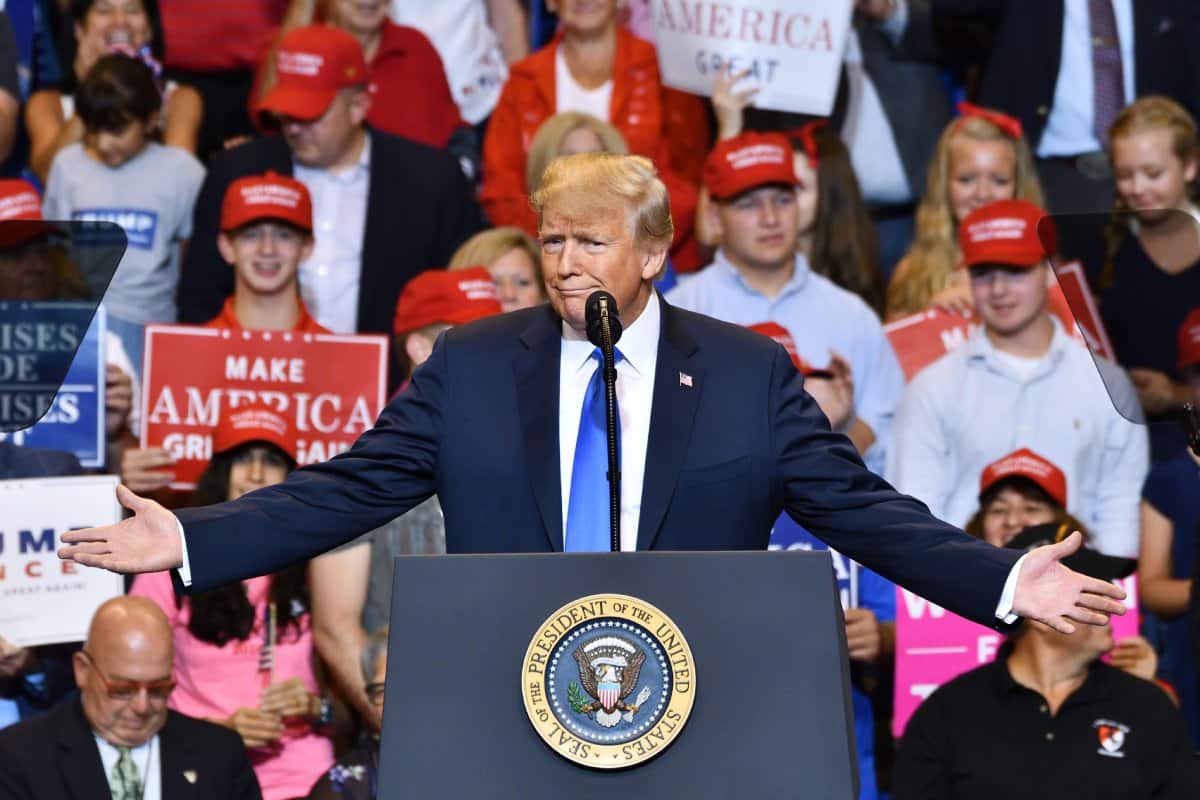Donald Trump’s surprising decision to bypass Illinois’ loyalty oath has raised questions about his commitment to democratic norms, adding a layer of intrigue to an already contentious political landscape. Here’s the full story.
An Unsigned Oath
As the 2024 presidential race gains momentum, a surprising development has emerged, drawing attention and criticism from the Biden campaign.
The focus is on former President Donald Trump’s decision not to sign a loyalty oath in Illinois, in which the candidate swears to not attempt an overthrow of the government, a move which has come into sharp relief in light of his alleged involvement in the January 6 insurrection and his previous compliance with the oath in 2016 and 2020.
Illinois news outlets WBEZ and the Chicago Sun-Times conducted a thorough investigation that revealed Trump sidestepped signing the loyalty oath, a crucial part of the state’s ballot-access paperwork.
The report, published last week, raises eyebrows just days before the third anniversary of the January 6 insurrection, an event for which Trump has been indicted for his alleged attempts to overturn Biden’s 2020 election victory.
Biden Campaign’s Response
Biden campaign spokesperson Michael Tyler expressed deep concern over Trump’s decision not to sign the loyalty oath, emphasizing the historical significance of such commitments.
Tyler remarked, “For the entirety of our nation’s history, presidents have put their hand on the Bible and sworn to protect and uphold the Constitution of the United States – and Donald Trump can’t bring himself to sign a piece of paper saying he won’t attempt a coup to overthrow our government.”
This statement underscores the gravity of the situation, linking Trump’s actions to the turbulent events of three years ago.
Trump’s Response
In response to the criticism, Trump’s spokesperson Steven Cheung did not provide a clear explanation for Trump’s decision.
Cheung asserted, “President Trump will once again take the oath of office on January 20th, 2025, and will swear ‘to faithfully execute the office of president of the United States and will to the best of my ability preserve, protect and defend the Constitution of the United States.” The unusual lack of clarity in Trump’s response adds an air of mystery, leaving observers to speculate about the motives behind his omission.
The WBEZ/Chicago Sun-Times analysis of state election records revealed that President Biden and Republican Governor Ron DeSantis signed the loyalty oath, contrasting with some of Trump’s Republican opponents.
Notably, Nikki Haley, former South Carolina governor, and Chris Christie, former New Jersey governor, also did not sign the pledge. This pattern of non-compliance among candidates raises questions about the underlying motivations and the significance candidates attribute to this traditional pledge.
The loyalty oath, a remnant of the McCarthy era, has persisted in Illinois despite federal courts ruling it unconstitutional on free speech grounds. Candidates are required to disavow any communist affiliations and pledge not to teach or advocate the overthrow of the U.S. government or the state by force or unlawful means..
Trump’s Eligibility Challenge
The decision not to sign the loyalty oath becomes even more perplexing in the context of the ongoing challenge to Trump’s eligibility based on the 14th Amendment. Critics argue that Trump’s alleged involvement in the January 6 insurrection disqualifies him from seeking public office. This legal wrangling behind the scenes has prompted speculation about Trump’s strategic considerations in navigating these legal challenges.
Simultaneously with Trump’s submission of ballot paperwork, five Illinois voters filed a petition to remove him from the state’s Republican primary ballot. As reported by the Washington Post, this grassroots opposition suggests a mounting challenge to Trump’s candidacy within the state.
The convergence of legal challenges and public dissent further intensifies the scrutiny surrounding Trump’s decision not to sign the loyalty oath. Donald Trump’s choice to forgo the loyalty oath in Illinois has become a focal point, generating controversy and prompting questions about his commitment to democratic norms.
As the 2024 presidential race unfolds, the absence of Trump’s signature on this McCarthy-era relic becomes a significant narrative, intertwined with legal considerations and potential political ramifications. The unfolding events in Illinois underscore the intricate interplay between historical traditions, legal challenges, and the evolving dynamics of American politics.
The post Trump’s Refusal to Sign Illinois Loyalty Oath Raises Legal Questions first appeared on Swift Feed.
Featured Image Credit: Shutterstock / Evan El-Amin.

